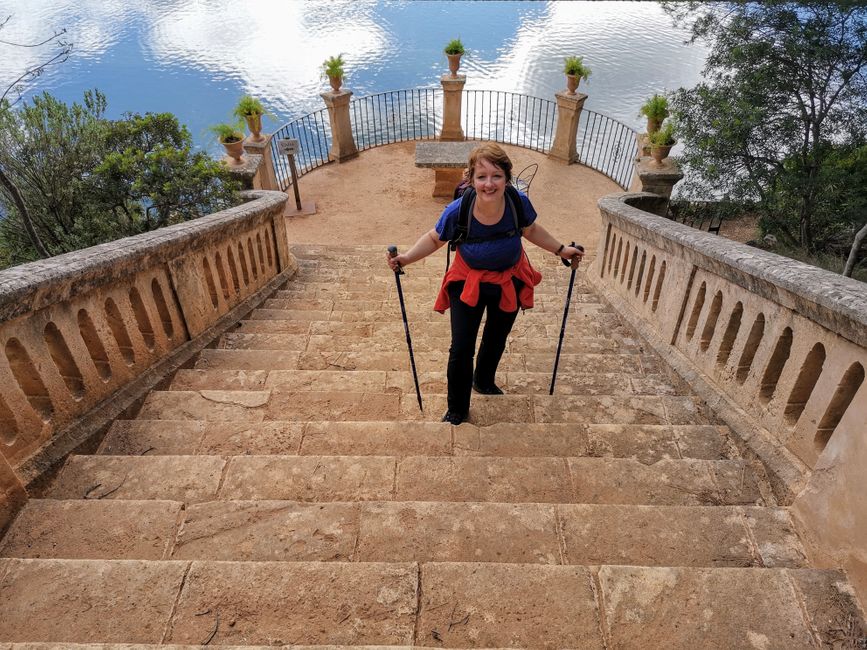Day 8, April 27, 2021: 2nd day at the office in Kasese
Objavljeno: 28.04.2021
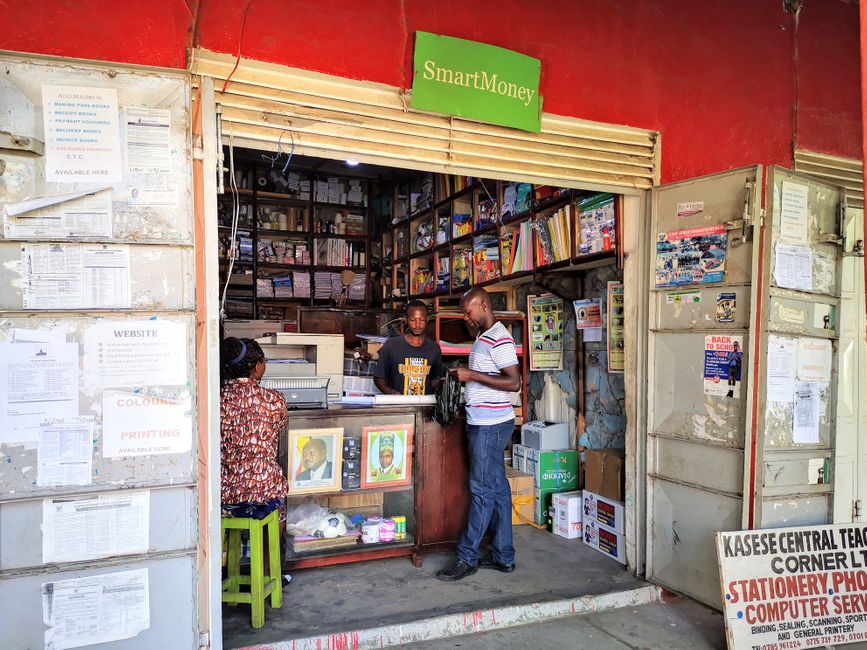
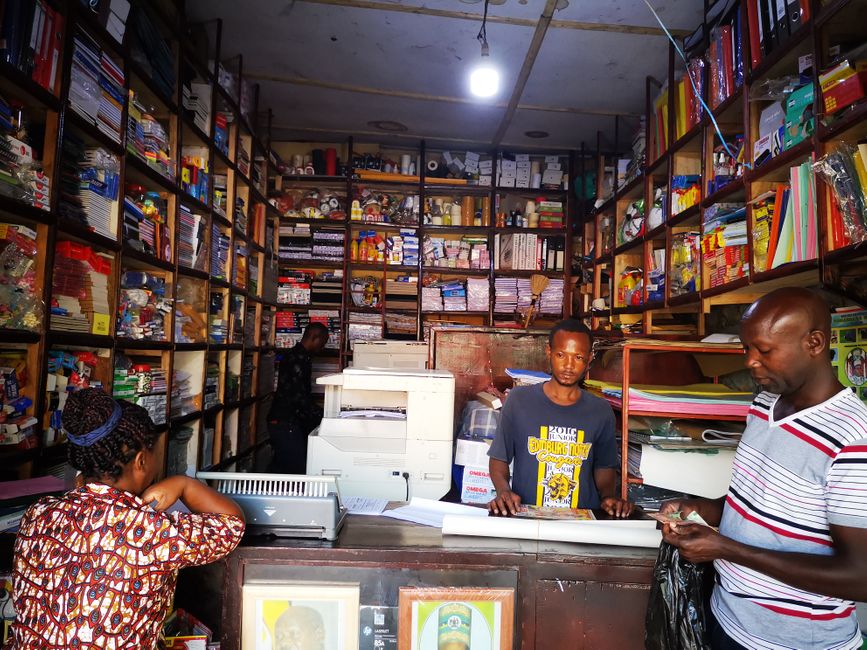
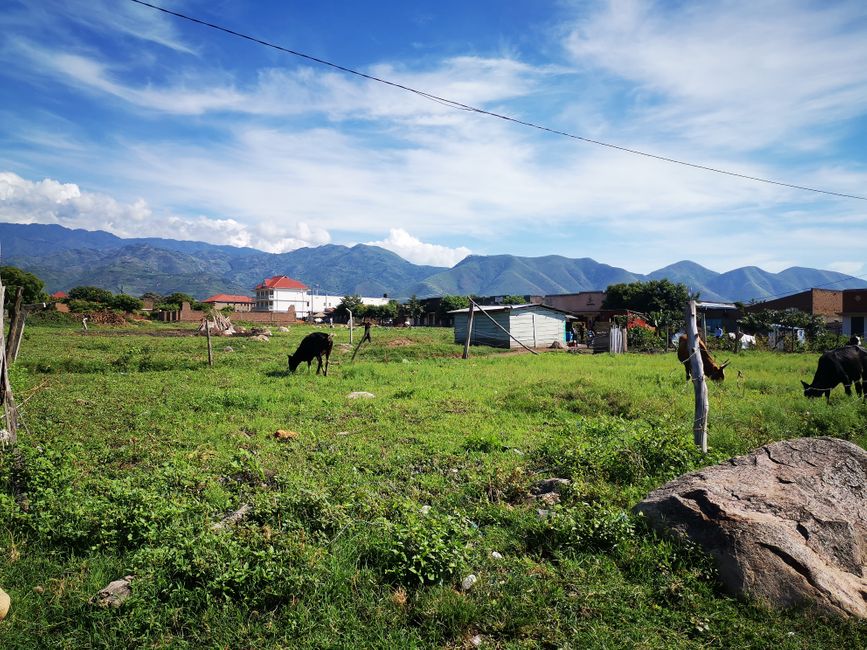
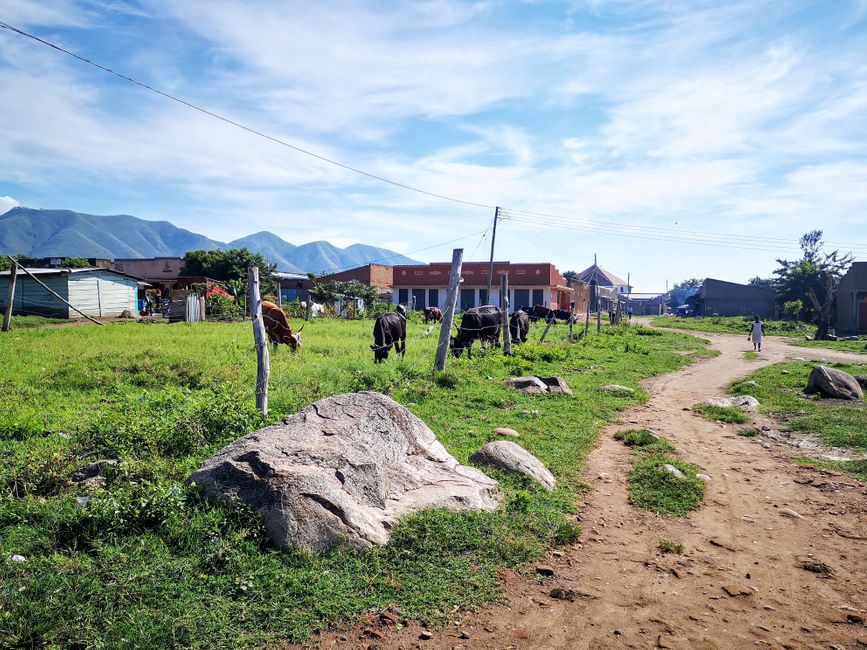
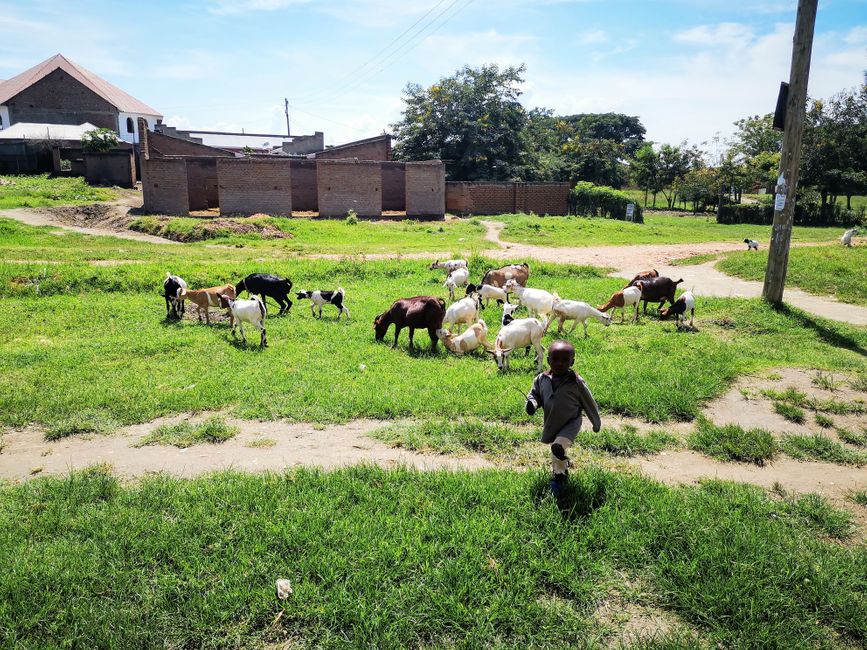
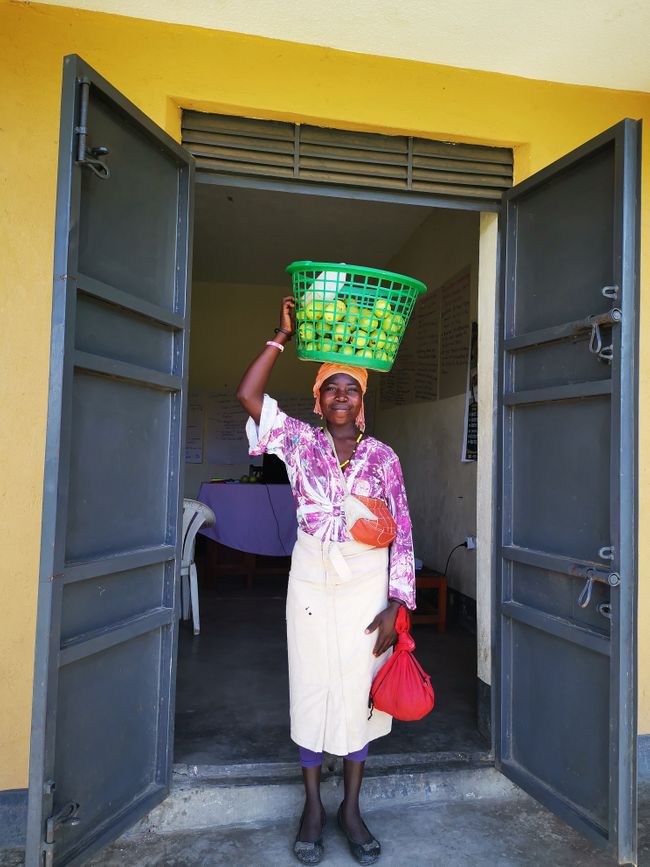
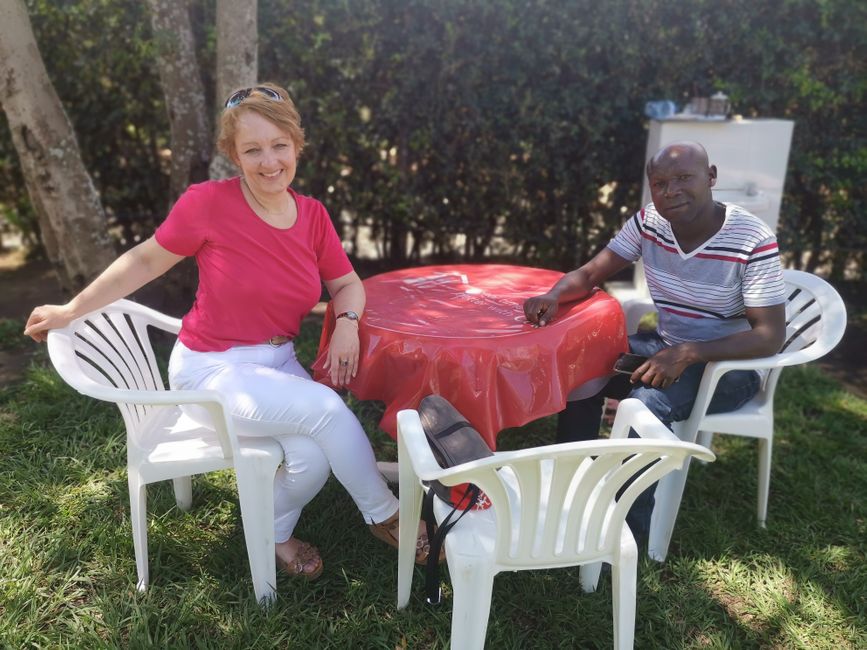
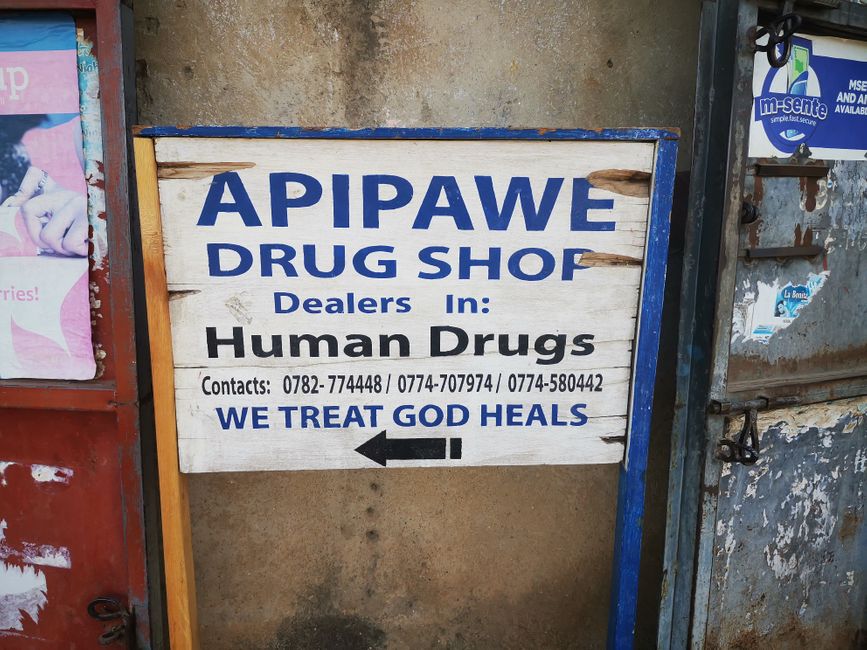
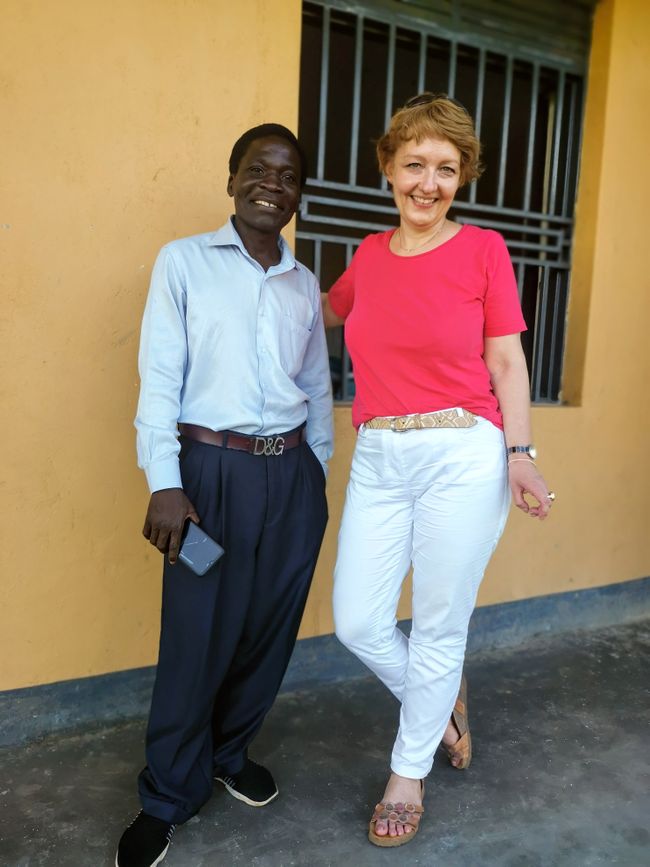
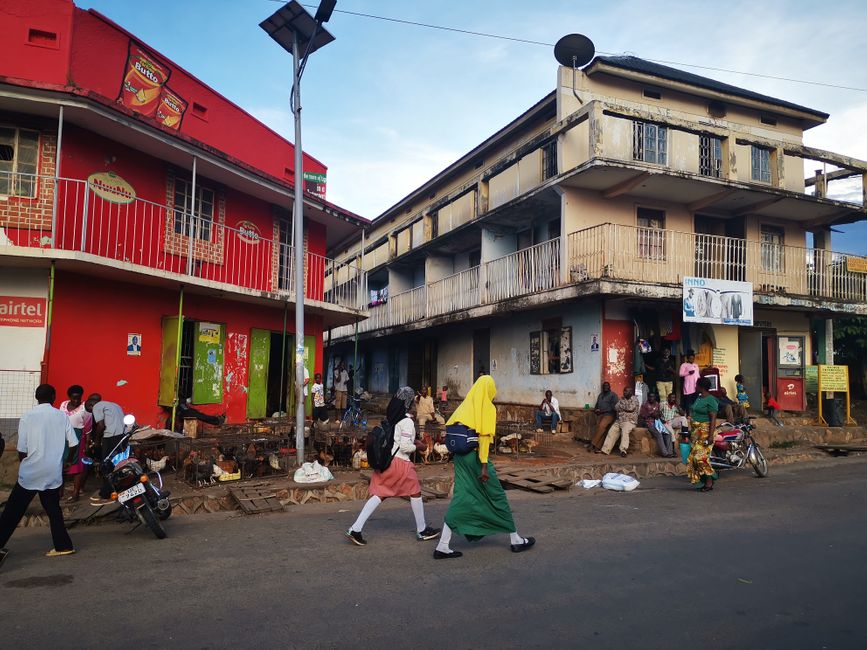
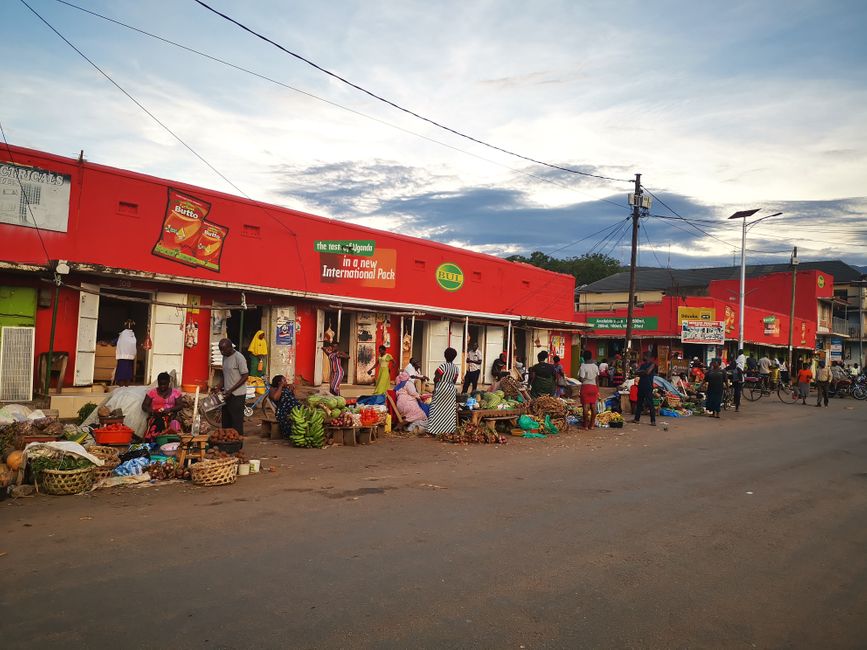
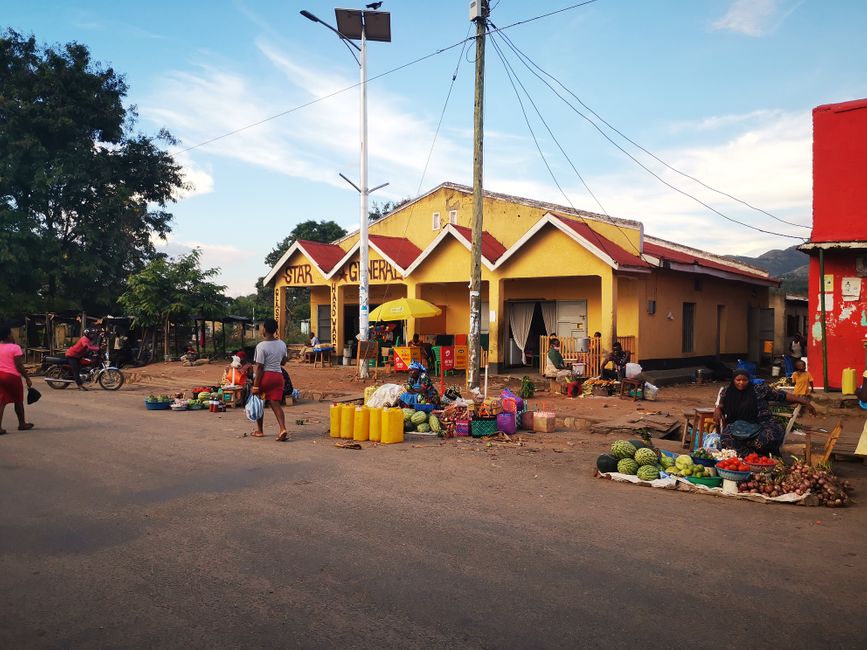
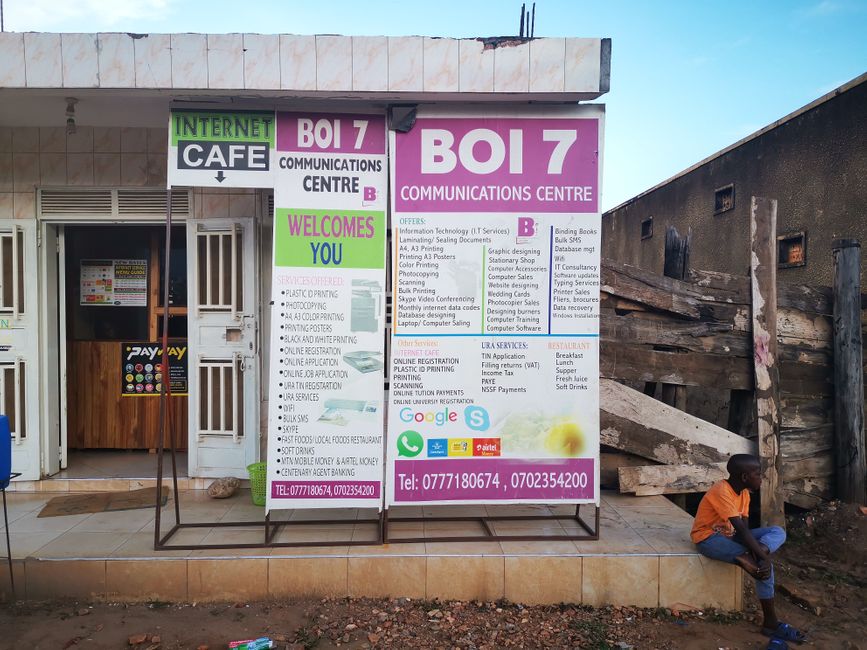
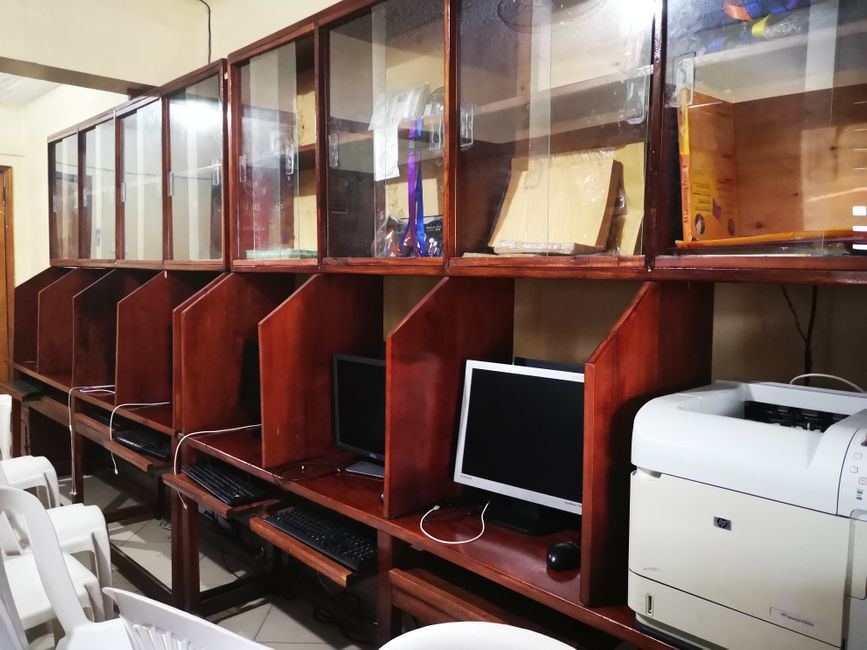
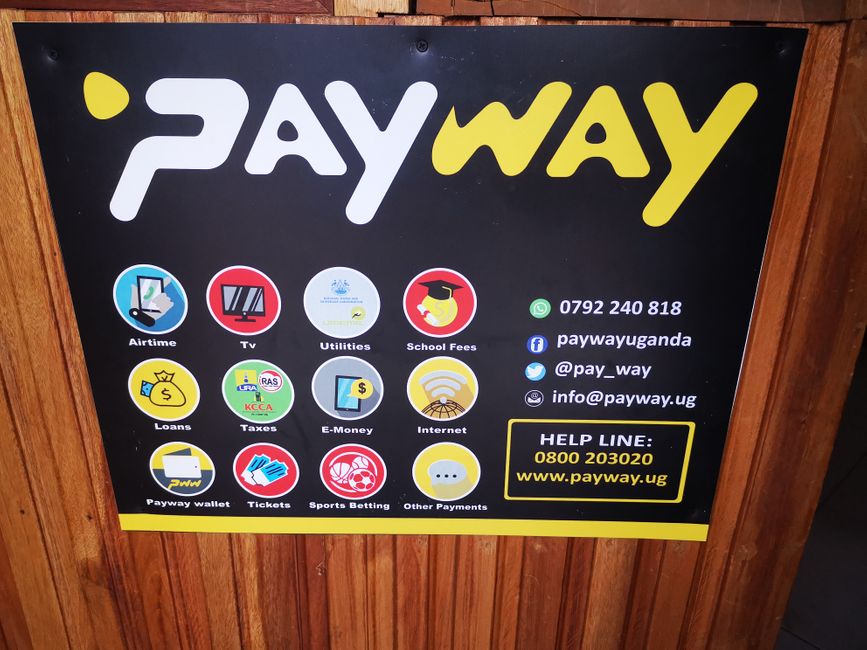
Pretplatite se na bilten
Bwambale picks me up promptly at 9 am at the hotel. On the way to the office, we stop at a stationery store to get flipchart paper and tape for our workday today. The store is well stocked and looks like how it used to be in earlier times. After telling Bwambale about my unsuccessful hunt for mosquito repellent yesterday, we continue to a pharmacy. And behold, they still have supplies and I stock up generously.
Today we are alone in the office. Ndumbuko, as a school principal, is busy for the next two days, and the other directors of RWECO-VIDE are also occupied. Bwambale tells me that he slept in the office and shows me his sleeping mat, which is thinner than a yoga mat. I ask him if it wasn't terribly uncomfortable and cold on the bare concrete floor of the office, to which he replies that he is used to it and it occasionally happens. To get back to his village, he relies on a Boda-Boda, a motorcycle taxi, and they are instructed by the government to stop their service no later than 7 pm (officially already at 6 pm) to contain the pandemic, so he occasionally doesn't make it back in time. In addition, these rides are expensive and he can't afford them.
Then we get to work: SWOT analysis and derived measures. I ask if there is already a study or any form of training in tourism in the region, and I learn that two colleges teach it. After a short internet search on my smartphone (there is no WIFI in the office, and my laptop doesn't have a SIM card), it is clear that the Katwe Tourism Institute only trains wildlife rangers. While this is good for the existing tourist offer, it is not what I had in mind. Since Bwambale knows the director of the Twin Wings College here on-site, I ask him to invite him for an exchange, which he immediately puts into action.
Shortly after, Baluku arrives to plan the tour that I plan to take after my voluntary work. Since I'm already here, I definitely want to visit the gorillas in Bwindi and also the Queen Elizabeth National Park. There is even enough time for a visit to the chimpanzees in Kibale. So I will walk in the footsteps of Dian Fossey and Jane Goodall.
It is already clear that I will have to pay for this tour in cash. The price of 400 USD, which Baluku offers me for transport including him as the driver, seems very fair to me considering the distances and duration. I get this special price on the condition that Bwambale accompanies us.
I have no problem with that as long as I only have to pay for my own expenses for all other activities. The idea is also good because Bwambale gets to know some tourist attractions in his country that he would never be able to afford otherwise. The entrance fees to the national parks are greatly reduced for locals, and affordable accommodations can also be found, but regular prices apply for transfers. And Bwambale doesn't have a car and therefore hasn't gotten a driver's license.
I will have to pay all other costs for accommodation, entrance fees, and the costs for the trekkings to see the primates directly to the respective providers. The total cost will be around 1300 USD. I'm lucky because due to Covid, the prices for gorilla and chimpanzee tours have been reduced, which saves me about 250 USD. Furthermore, I have already compared the prices with German travel operators in advance and know that the costs are reasonable. Now I just need to find a solution to get that much cash as easily as possible.
Shortly after Baluku, Ludwig, the director of the Twin Wings College, arrives and patiently waits in the meantime; at some point, I ask him if it's okay for him and apologize for the long waiting time. He says he would like to wait until we have sorted out the tour part, he has time. Very understanding and not conceited at all. In Germany, a invited guest, especially when holding an important position, would probably react very irritably and not with so much understanding.
The Twin Wings College has two tourism courses – one for tour guides and one for hotel merchants. I ask if management skills are also taught, which he confirms. After graduation, the graduates find jobs in hotels, restaurants, as trekking guides, and even in leading positions such as hotel managers.
We also talk about the language barrier and I ask if there are teachers in the region who can teach languages other than English. Many tourists from Europe, especially the older generation, do not speak English very well and are happy to have a guide in their native language. He confirms that this is indeed a problem and unfortunately, there are no teachers for other foreign languages here. Even in the capital Kampala, there are only a few.
I continue to ask if the college has computers. But unfortunately, the flooding of the Nyamwamba River last year also left its mark here. They actually had computers, but they were completely destroyed by the floodwaters, and the school fees are not enough to replace them. In the worst case, it can take years until they have the technical equipment they had before the flood. Very unfortunate! Because my idea was to use free online language courses, of which there are now quite a few.
During our tour planning, Ludwig has studied the results of our previous work, which is documented on flipchart sheets on the office walls, and is full of praise. It would be a bit embarrassing for me to repeat the hymns of praise here, but I am pleased that he, who is also knowledgeable about tourism, confirms the direction.
He says "pole pole tutagenga", which is a Swahili saying meaning "slowly we shall develop", which is exactly my motto "start small and grow step by step", which I conveyed in the workshop on Monday.
In addition to his work as a college director, Ludwig runs a trekking agency for tours in the Rwenzori Mountains; here, his students also receive practical training.
We also talk about the topic of Covid, which has also left severe traces here in Uganda despite the very low number of infections so far. Last year, there was a total lockdown. Everything was closed, and people were sitting at home, the latter not a nice condition since they don't have cozy living rooms and bedrooms here, as we are used to in Germany. The really bad thing about it is that the entire trade collapsed - no markets where farmers could sell their harvest, no shops open, and thus a disaster for the shop owners; in addition, many people fled from the cities to the countryside out of fear of the unknown disease, and with that, purchasing power was lost in many small towns because the people have not returned since then. And here in the region, all of this was topped by the destructive flooding of the Nyamwamba River.
Ludwig is very talkative, in line with the "storytelling tradition" that is part of Uganda's culture. So I learn that his grandmother lived to be 140 years old without ever seeing a doctor or taking medication. Even if the 140 years should not be true and she should have only turned 90, this would still be sensational for Uganda. She seems to have been an extraordinary woman in general. For example, she taught her grandchildren "a woman is the center of knowledge, wisdom, and blessing, and you should always treat her like a pot full of gold".
I believe that when it comes to questions of equality between women and men, we must never forget that it is the mothers and grandmothers who raise their sons and grandsons and thus lay an important foundation for their later view of women.
Ludwig asks me at which position I am in the order of my siblings, and when I tell him that I am the firstborn, he explains to me that in Uganda, I am a "Masika". This is a term for the firstborn daughter and means something like adviser. The equivalent for the firstborn son is called "Baluku". And Bwambale is the second-born son. The order of siblings plays an important role in Uganda, and there is a name for each position. But the firstborn and lastborn have a special significance.
Then he explains to me that the first name Ruth is very common in Uganda and means "savior" and "bridge". I had previously known that my first name stands for "friendship", which is derived from the biblical Book of Ruth. But the new meaning that Ludwig reveals to me also pleases me very much 😊
Furthermore, I learn that both Bwambale and he are fathers of twins, and this, in turn, has a very special meaning in Uganda. In this case, one receives a title - as a father "Ise Bwahasa" and as a mother "Nya Bwahasa", which means father or mother of twins, and thereby enjoys certain privileges in the community. Ludwig also tells me that there are many multiple births in his family. In response, I say that twins also occur in the paternal branch of my family, and my godfather is a twin. Ludwig explains to me that I am therefore a spiritual twin (@Gerhard - that's cool, right?).
After Ludwig left, Godfrey comes by (one of the directors who also manages the YVCO Child Development Center) and brings me mini bananas. They always remind me of my mother, who told me that Banana Masa (banana puree made from mini bananas) was my main meal as a baby in Brazil.
The afternoon has flown by, and we make our way back. I saw a pair of trousers at a customer in the hair salon next door that I would like to have. Bwambale wants to show me a shop that carries such items. For this, we go to the local market, which strongly reminds me of a Souq from my time in the Emirates. The store turns out to be one of many fabric stores that are close together. However, both the designs and the fabrics take some getting used to. It takes a while for me to find what I'm looking for. I actually wanted 100% cotton, but in the end, I decide on a fabric made of a blend with allegedly a high cotton content. In this case, I cannot judge that because the fabrics are all waxed and feel like wrapping yourself in an oilcloth. But I'm assured that the fabric will become nice and soft after the first wash. We will see…
We continue to the seamstress, who has her shop around the corner. I explain to her the design for trousers and a top that I have in mind. Thanks to Google, I can also illustrate my explanations with images from the internet. I want a "Salwar Kameez", a combination that I know from India. I hadn't really thought of Uganda for the tailoring trade and I am very pleased that I am getting tailored clothes unplanned and at an absolutely dream price. The fabric only costs me 5000 UGX thanks to the good negotiation of my companions, and the tailoring itself costs 25000 UGX, totaling around 7 euros. Although I am skilled in haggling at the bazaar, as a foreigner alone, I would never have gotten this price. Friends and relatives of Bwambale get the orders, which I find completely fine and gladly support. For example, the seamstress knows Bwambale from his school days.
On the way back to the hotel, we pass through the only street in Kasese with solar-powered streetlights. I told Bwambale about a YouTube video that I found in advance, in which, among other things, the mayor of Kasese says that he wants to convert the entire district to 100% solar energy by 2020. However, at the end of the video, it is said that it will probably take until 2040 to achieve this goal. Well, we are familiar with delays in major projects in Germany in the meantime...
My colleague Ndumbuko also had solar panels installed in his old house that were sufficient for lighting the interior rooms and charging digital devices. Unfortunately, his solar panels, which he had saved up for, were swept away by the flooding. Now he is dependent on kerosene lamps again. He can only charge his smartphone where he finds electricity, for example, in his office or at my hotel, so there are times when he is not reachable because his smartphone has run out of power.
For dinner, I'm at the hotel today. Since my arrival, I have been trying to get to know local food, but so far, I haven't really succeeded. In the hotel, the selection is always the same, at least when I ask what they have: mashed potatoes, rice, matoke (made from cooking bananas), ubundu (made from cassava, I think we know it as manioc), with tilapia (a local fish), goat, or liver. And that for both lunch and dinner. Apart from the fact that I hardly have any appetite in the heat, I wouldn't be able to eat three hot meals a day. Ugandans already eat "English breakfast" early in the morning, which consists of beans and sausages, while a cup of coffee and a little fruit are enough for me. I need a little variety, which is why I ask the friendly waitress Anna if I could also have a Spanish omelette, which is also known as a tortilla, and look up a recipe online to show the cook. Based on the ingredients that I have gotten to know so far, everything should be available, and that is indeed the case. By the way, the cook was happy to learn about a new dish in this way.
Pretplatite se na bilten
Odgovori
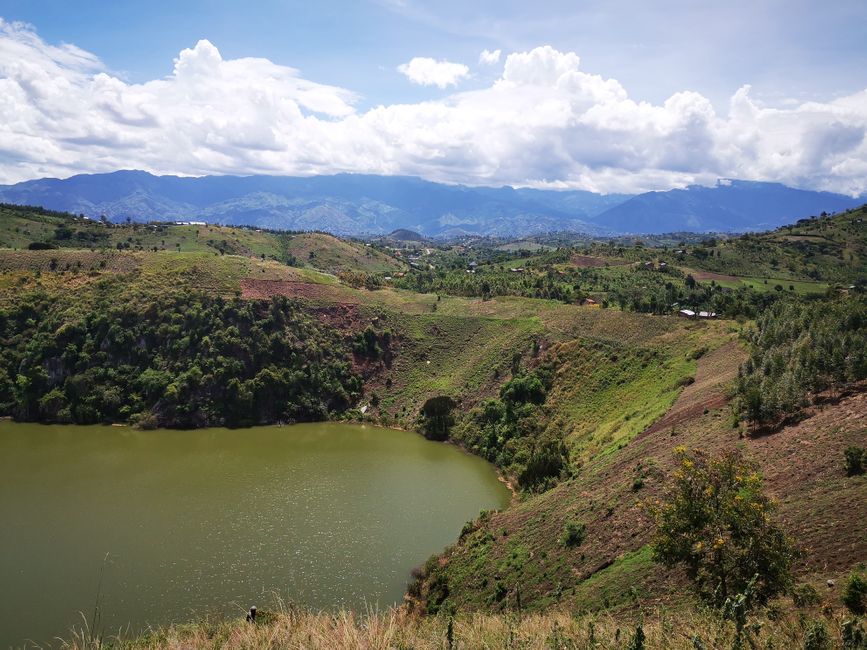
Izvještaji o putovanjima Uganda

